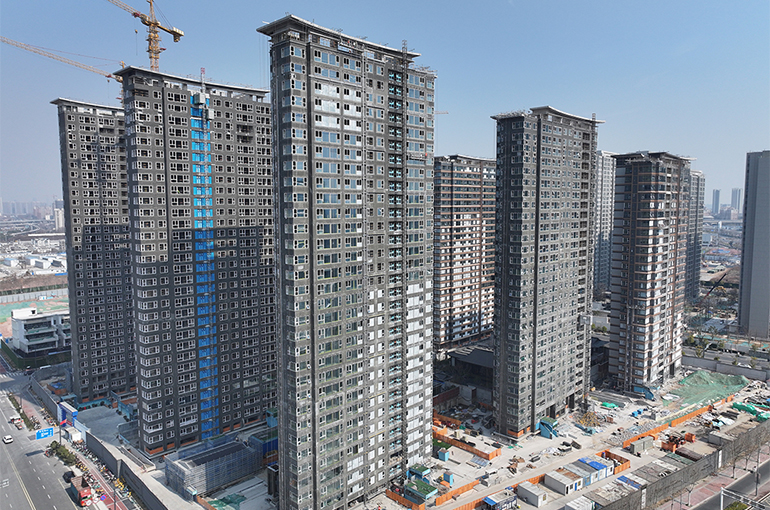 China's Home Prices Decline at Slower Pace in May
China's Home Prices Decline at Slower Pace in May(Yicai) June 17 -- House prices in 70 major Chinese cities continued to decline last month but at a slower pace than in April, mainly because policies aimed at stabilizing the real estate market keep taking effect.
New home prices in first-tier cities fell 1.7 percent in May from a year earlier, compared with a drop of 2.1 percent the month before, according to data released yesterday by the National Bureau of Statistics. Prices of new houses in second- and third-tier cities decreased 3.5 percent and 4.9 percent, down from 3.9 percent and 5.3 percent, respectively, in the period.
Operations in the real estate market were relatively smooth last month, but market confidence was still recovering, and the supply-demand relationship still needed improvements, NBS spokesperson Fu Linghui said. "Continued efforts are needed to promote the stability and full recovery of the real estate market," he added.
Despite the signs of recovery, the number of major cities reporting month-on-month increases in new home prices fell to 13 in May from 22 in April, NBS data also showed. Hangzhou led the list with a 0.8 percent gain, followed by Shanghai at 0.7 percent and Nanning and Urumqi at 0.4 percent.
Preowned home prices dropped 2.7 percent in May from a year earlier, versus 3.2 percent in April, according to data from the NBS. In second- and third-tier cities, prices of second-hand houses plunged 6.1 percent and 6.9 percent, down from declines of 6.5 percent and 7.4 percent, respectively, in the period.
Only three cities -- Luoyang, Nanchong, and Wuxi -- saw their preowned home prices increase last month from a year earlier, down from five the month before, NBS data also showed.
China needs to actively adapt to changes in the property market's supply and demand dynamics, continue promoting urban renewal projects and the renovation of old houses, increase the supply of high-quality homes, stimulate demand for basic and upgraded housing needs, and build a new model for the real estate industry to promote its healthy development and stable growth, Fu noted.
Property prices are expected to continue recovering this month, Zhang Bo, director of think tank 58 Anjuke Research Institute, told Yicai. The future policy focus should be on managing short-term risks and exploring long-term models, he added.
The marginal effects of policy stimulus have diminished since the beginning of the year, said Zhang Dawei, chief analyst at real estate agency Centaline Property, Securities Time reported.
April and May are the traditional sales peak season, but housing prices generally decline in summer, Zhang noted, adding that price adjustments will likely exceed those in April and May in the June-to-August period if strong policies are not introduced.
China should continue optimizing real estate policies and introduce more regulatory measures tailored for different regions and demographic groups, Zhang suggested.
Editor: Futura Costaglione